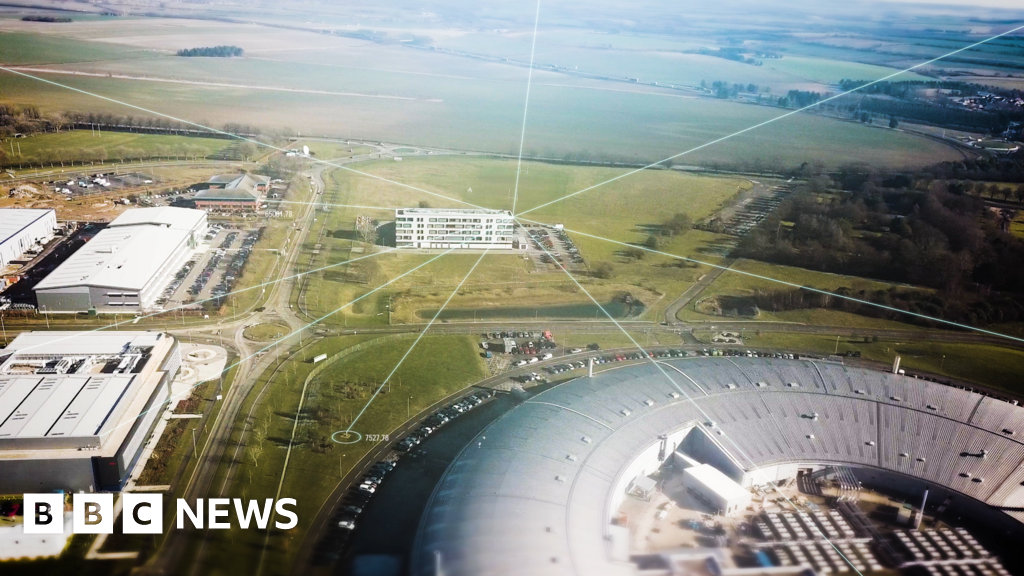These are 5 new jobs coming to Europe thanks to AI

Looking to build a career in the world’s fastest-growing technology? These are five new potential fields of work coming to Europe in light of the EU AI Act.
There’s been a lot of talk about what jobs will be lost or changed with the rise of artificial intelligence (AI), but little has been said about what new professions could be coming to Europe because of it.
Europe is putting itself on the map when it comes to AI, with the European Parliament having just approved the EU Artificial Intelligence Act, the world’s first set of regulations for companies that are working on AI technologies.
With the tech landscape on the continent changing so quickly, here are five AI jobs that, according to recruitment agencies or independent studies, could or already have started hiring in Europe.
1. Artificial Intelligence Engineer
The Artificial Intelligence Engineer develops, programmes, and trains AI algorithms so that “they can function like a human brain,” according to a definition from Microsoft.
On their website, Microsoft writes that professionals interested in this role need to have expertise in software development, programming, data science, and data engineering.
LinkedIn’s 2024 Job Market Prospects for Europe report noted that Artificial Intelligence Engineers were among the top-growing professions in Italy and Switzerland, coming in second and third respectively.
The report identified that applicants in both countries would need computer vision, machine learning, and natural language skills to succeed in these roles.
In Switzerland, most applicants had at least three years of experience before getting one of these roles; in Italy, the average was around 19 months of experience.
2. Prompt Engineer
Prompt Engineers, otherwise dubbed “AI translators” by recruitment firm Protiviti, are the ones that make sure that humans are communicating well with AI.
They will refine the prompts given to large language models (LLMs) like OpenAI’s ChatGPT to make sure the AI gives them the most accurate responses possible.
These prompt engineers could also write more thorough descriptions for ChatGPT so that they can develop something more tailored to what the business needs, according to a forecast from UK-based firm Robert Half.
For example, prompt engineers could specify the structure, number of points, and the summary length of each section of a business whitepaper.
“The Prompt Engineer is therefore both an IT expert and a business analyst in one,” Christian Schmitz, a recruitment consultant with Robert Half, said.
“In addition to technical knowledge, he or she brings communication and analytical skills to the table”.
Engineers can get started in this profession without a university degree, but both Protiviti and Robert Half have tailored programmes over the next five years.
3. Cybersecurity Analyst with AI
Like the Artificial Intelligence Engineer, the Cyber Security Analyst / Security Operations Analyst is one of the fastest growing professions in Europe, according to LinkedIn’s 2024 forecasting.
This is particularly true in Germany, Italy, Sweden, and the Netherlands.
Cybersecurity analysts put in place security standards, identify and assess risk factors, and uncover vulnerabilities within companies or organizations to protect them from external cyberattacks.
While this isn’t necessarily a new profession created because of AI, Sebastian Mayer with Protiviti said those with a background in AI will have an advantage.
“There is always a risk that the large amounts of data fed into AI will fall into unauthorised hands,” Mayer said in a statement.
“AI will not fundamentally turn cybersecurity on its head… but AI developers who take security aspects into account will be in particular demand”.
4. AI Technology specialist or consultant
The European Commission is already hiring consultants – or as they call them, technology specialists on AI – in Luxembourg and Belgium.
This move comes not a week after the EU AI Act, the first-ever legal framework in the world to address the risks and opportunities for the new technology, was passed.
The job description posted through the newly formed European AI office says that tech specialists will enforce and supervise “new rules for general-purpose AI models” and will develop “state of the art codes of practice” for how AI will be used.
These jobs also work on tools, methods, and benchmarks for evaluating the reach of general AI models and assessing their risks.
For this type of position, the European AI office is looking for those with expertise in assessments, investigations and monitoring the AI “ecosystem”.
The European Commission is looking specifically for research scientists, computer scientists, software and data engineers with some previous experience in AI for these roles.
5. AI Ethics Officer
According to Robert Half, Ethics Officers would make sure that the use of AI in the hiring process or its other impact for employees will be fair and balanced.
One use could be to evaluate what biases could come up when using an AI in the hiring process, knowing that the historical data tends to give advantages to white men between the ages of 30 and 40, a forecast on Robert Half’s website explained.
The SHERPA project, a group of experts from six European countries, recommended ahead of the EU AI Act that the European Union hire and put in place AI Ethics Officers to “oversee AI ethics within organisations”.
Their research suggested that AI Ethics Officers should be internal positions that “combine scientific and technical understanding with ethical and human rights awareness,” when advising on the use of AI systems.
In their opinion, the role should be independent and able to speak out when there’s a question of harm.
The role would look similar to a Data Protection Officer or a Chief Ethics Officer – positions that already exist within the framework of the European Commission, Parliament, and other bodies.
Related
Trouble lies ahead for European luxury brands and car makers…
From luxury brands to car makers, European companies are taking a hit from China’s slowdown, and more trouble is coming for businesses heavily reliant on dema
ESA and UK Space Agency increases jobs at satellite laboratory
ESAThe European Centre for Space Applications and Telecommunications employs more than 100 people in HarwellMore than 100 new jobs are set to be created at a sp
Where are Hope Uzodimma’s 4000 European jobs? | TheCable
BY MACDONALD EBERE When Senator Hope Uzodimma, the Governor of Imo State, promised to link 4000 Imo youths to job opportunities in Europe before his re-electio
No to Orbán, yes to Meloni. European Parliament hands out…
In the civil liberties committee, the nomination of Charlie Weimers of ECR member the Sweden Democrats as a vice-chair caused uproar. French Renew MEP Fabien













